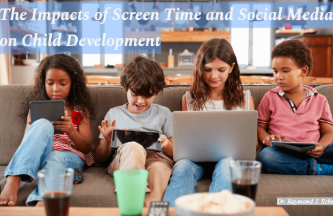In today’s digital world, screens are a regular part of daily life—from tablets and smartphones to televisions and computers. For young children, especially those in their early learning years, exposure to screens can influence how they grow, think, and interact with the world. Understanding the impact of screen time helps families and educators make choices that support healthy development.
How Screen Time Affects Young Minds
During the early years, children’s brains are developing rapidly. They learn best through active play, hands-on experiences, and social interaction. While digital tools can offer educational value, too much screen time may limit opportunities for physical movement and real-world connection. Research suggests that long periods of passive viewing may affect attention span, language development, and sleep patterns.
Finding a Healthy Balance
The key to using screens effectively with young children lies in balance and purpose. Not all screen time is the same. Educational programs, video calls with loved ones, or interactive learning apps can support early learning when used thoughtfully. The American Academy of Pediatrics recommends limited, supervised screen use for children under five, with a focus on co-viewing and discussing content together.
Tips for Families and Caregivers
-
Set daily screen time limits based on age and activity level.
-
Choose high-quality content that encourages thinking, creativity, and learning.
-
Engage in screen time together—ask questions, explain ideas, and connect lessons to daily life.
-
Create screen-free zones during meals, playtime, and bedtime to encourage rest and connection.
-
Encourage active play and outdoor experiences to balance digital activities.
Using Screens as a Learning Tool
When integrated thoughtfully, digital tools can be part of a well-rounded early learning environment. Some apps and programs are designed with child development in mind, supporting literacy, problem-solving, and early math skills. The most important factor is adult involvement—guiding and enriching the experience.
Conclusion
Screen time, when used with care and intention, can support learning in moderation. By staying mindful of how and when screens are used, caregivers can ensure young learners grow in a balanced environment that nurtures curiosity, movement, and meaningful connection.


